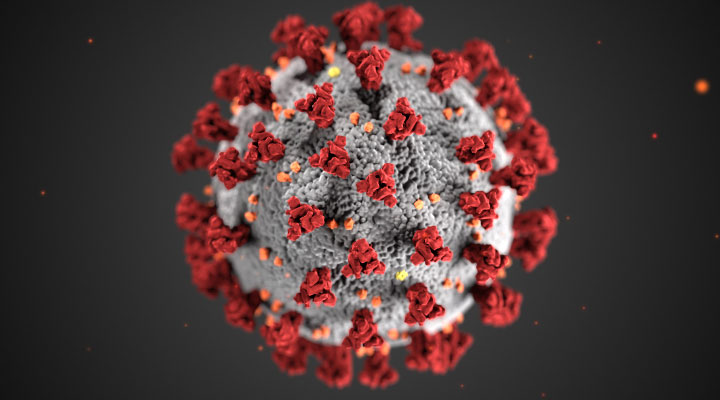Moderna is set to put its COVID-19 vaccine into phase three clinical trials on July 27 and is manufacturing stocks in advance of a hoped-for approval by the Food and Drug Administration.
“These Phase 1 data demonstrate that vaccination with mRNA-1273 elicits a robust immune response across all dose levels and clearly support the choice of 100 µg in a prime and boost regimen as the optimal dose for the Phase 3 study,” Moderna chief medical officer Dr. Tal Zaks said in a statement on July 14.
A New England Journal of Medicine report on mRNA-1273 published July 14 further elaborates, “The mRNA-1273 vaccine was immunogenic, inducing robust binding antibody responses to both full-length S-2P and receptor-binding domain in all participants after the first vaccination in a time- and dose-dependent fashion. Commensurately high neutralizing antibody responses were also elicited in a dose-dependent fashion. Seroconversion was rapid for binding antibodies, occurring within 2 weeks after the first vaccination, but pseudovirus neutralizing activity was low before the second vaccination, which supports the need for a two-dose vaccination schedule.”
That certainly sounds good. But is it false hope?
After all, there has never been such a coronavirus vaccine for humans ever produced.
Not for SARS. Not for MERS. Not for the common cold.
And sadly not for COVID-19 — yet.
So, what if there is no safe and effective vaccine for COVID-19 ever developed?
This is one disquieting contingency that policymakers ought to be considering very carefully right now. Even as clinical trials for mRNA-1273 continue, large chunks of the global economy remain closed, with millions of Americans out of work and school districts still making plans for how to at least partially reopen schools.
But so far, there has not been much public discussion about what happens if all our hopes for a full vaccine-led societal and economic recovery from the pandemic fails.
We do get some vague statements from government officials that seem to air on the side of optimism.
Food and Drug Administrator Stephen Hahn told Fox News on July 14, “we have a number of vaccine developers … who are in the process of developing vaccines for COVID-19, so that does give me encouragement.”
Hahn called the Moderna-proposed vaccine “good news” and said, “One thing I can tell the American people is that the FDA is on the job working with the vaccine developers, and we want to make sure that the data shows us whether the vaccine is safe and effective so that we can make the right decision for the American people.”
Dr. Anthony Fauci, director of the National Institute of Allergy and Infectious Diseases on July 9 said of the ongoing trials by Moderna and others: “The early data on these trials have a cautious optimism that we will be successful at least in developing a vaccine with some degree of efficacy by the end of the year, the beginning of 2021.”
So, Fauci is “cautiously optimistic” we might get “some degree of efficacy” from a vaccine by 2021.
But there could be cause for skepticism. Dr. Rachel Roper a professor of immunology at East Carolina University who worked on a SARS vaccine years ago, told New York Magazine in April, “They really are very similar viruses [SARS and COVID-19], both virulent and contagious… People think, ‘Oh, if you make antibodies to it, it’s going to be protective.’ That’s not necessarily true. We were able to induce an immune response, but it wasn’t good enough to really protect against the disease.”
Further, a study out of the UK finds that only 17 percent of COVID-19 patients retain antibodies after a three-month period, calling into question how effective a vaccine might be.
“People are producing a reasonable antibody response to the virus, but it’s waning over a short period of time and depending on how high your peak is, that determines how long the antibodies are staying around,” said the study’s lead author, Dr. Katie Doores of King’s College London.
Meaning, we could, as Fauci suggests and Moderna promises, get a vaccine that does produce antibodies, but as Roper warns, simply is not good enough to prevent infection. It could just be wishful thinking.
So, we’ll see. While the vaccine that Moderna is developing sounds promising, the federal government and states still need to be ready for a worst-case scenario, which is what if it doesn’t work?
Are there alternatives, perhaps therapeutic supplements that the American people could be consuming as a stopgap? Henry Ford Hospital researchers just published a study of 2,541 hospitalized patients finding hydroxychloroquine to be effective after all, cutting the mortality rate in half, provided that treatment begins early.
Dr. Marcus Zervos, division head of Infectious Disease for Henry Ford Health System stated, “We attribute our findings that differ from other studies to early treatment, and part of a combination of interventions that were done in supportive care of patients, including careful cardiac monitoring. Our dosing also differed from other studies not showing a benefit of the drug. And other studies are either not peer reviewed, have limited numbers of patients, different patient populations or other differences from our patients.”
So, it’s possible there could be alternatives, and could create a scenario for how states, businesses and schools reopen in the event there is no vaccine.
One thing’s for certain, we cannot stay locked up forever. Kids need to go to school. Millions of Americans need to get back to work. While we should be hopeful that the vaccine will be safe and effective, we need to start debating now rather than later what the alternative world looks like.
Robert Romano is the Vice President of Public Policy at Americans for Limited Government.







